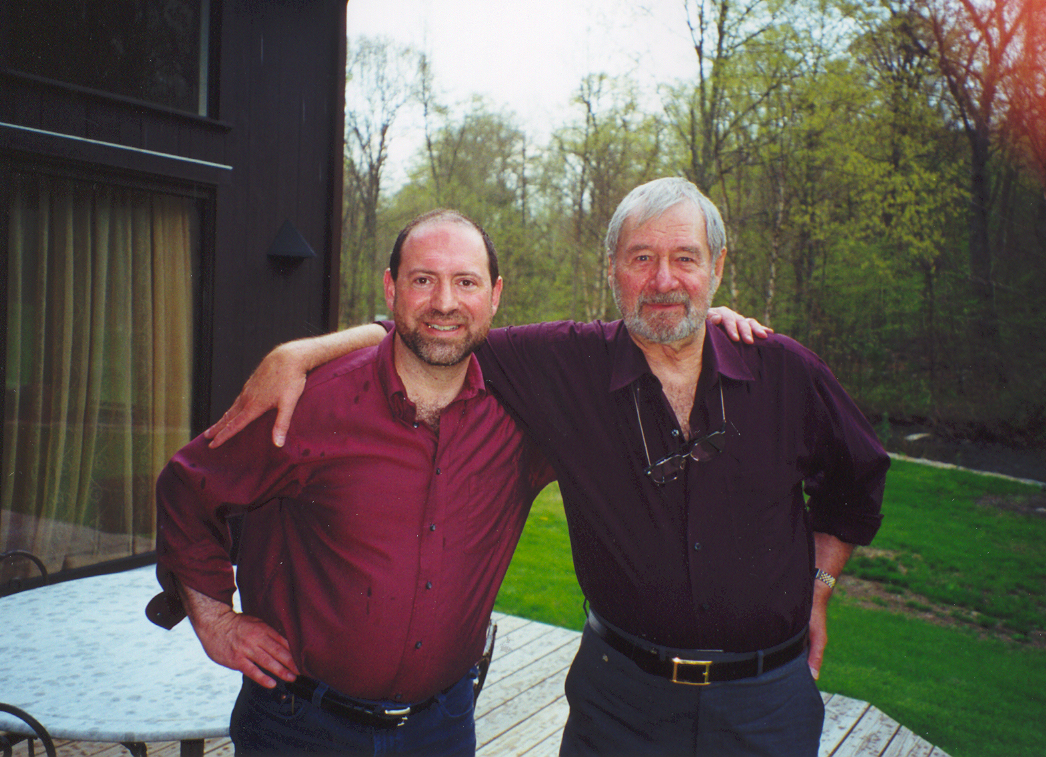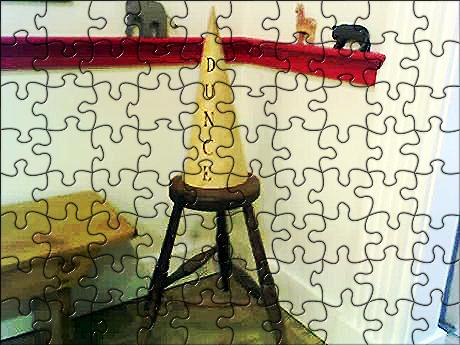Monday, September 13: The Scribbler
THE MICE TRAP
by James Lincoln Warren
Deborah’s column last week gave us a list of reasons, at least according to an evangelical religious sect, why good people do bad things. Along with the title of Hamlet’s play-within-a-play alluded to last week in this space, that reminded me of a famous acronym used by the CIA to explain why people turn traitor, or more specifically, how they can be recruited as spies for foreign governments. Interestingly, the first person to make the acronym public was Soviet defector Stanislav Levchenko, in his memoir On the Wrong Side: My Life in the KGB (1988). The New York Times review of the book quoted the appropriate passage:
In seeking K.G.B. recruits in Japan, Mr. Levchenko says, a potential agent’s vulnerability was measured by an American acronym known to intelligence agencies the world over — MICE, for money, ideology, compromise and ego. “Whenever an intelligence officer evaluates the weakness of a target,” he writes, ‘“he always starts with MICE.”
Some spooks like to add a little sex to the mix, too, making the acronym SMICE. Whatever.
MICE has a strong correlation to the Seven Deadly Sins, but what makes it interesting is that it’s actually a kind of (im)moral lever, a means to move people in a direction where they can be criminally exploited. And not only for purposes of espionage. Let’s take a closer look.
MONEY. This one may seem obvious, and I’ve mentioned before that greed is my favorite criminal motivation for my own fiction. But it can also apply when greed is not the driving force. Need works just as well.
The most shocking thing I remember from my time as a bookseller was when I worked for Barnes & Noble. At one manager’s meeting, the topic at hand was inventory shrinkage, which usually relates to shoplifting countermeasures. The discussion spilled over into customer fraud, which was a major problem for us. The biggest scam involved returns of stolen books for refunds, especially expensive Microsoft Engineering Certification programs, but there were other problems as well. I mentioned an employee scam I had encountered when I was with Tower Records: one of our clerks was taking merchandise off the floor and then processing refunds for the items on her credit card. I remember commenting that it was a hopelessly inept crime. How could the clerk not realize that she would be detected?
B&N’s Operations Manager, my immediate superior and the point man for the store’s security, was very interested in my story and asked several questions relating to how she tried to pull it off.
A month later, he was arrested and led out of the store in handcuffs. He had freshened up the routine by using his lover’s credit card instead of his own. It turned out that his lover was actually slowly dying of AIDS, and that he was drowning in the debt incurred by the insidious disease. When he was caught, he confessed immediately and completely, demonstrating a powerful remorse, and it was clear that for months, maybe years, he had been living at the bitter end of his tether. I think David Dean‘s observation last week that most crimes are not committed by dedicated criminals is right on the, ahem, money.
IDEOLOGY. The fourth definition of the word in the OED, and the meaning with which the modern world is generally most familiar, is “a systematic scheme of ideas, usu. relating to politics or society, or to the conduct of a class or group, and regarded as justifying actions, esp. one that is held implicitly or adopted as a whole and maintained regardless of the course of events.” How spies take advantage of it usually involves a conflicted loyalty — e.g., patriotic fidelity pitted against moral conviction, usually with regard to a political or economic system. Religious fervor is another branch of ideology ripe for exploitation. Terrorists are almost always ideologically motivated.
What makes ideology particularly dangerous as a criminal motivation is that it supersedes self-interest. You can therefore regard it as a form of madness. The “systematic scheme” may completely override rationality. In one of my stories, “An Ingraft of Evil”, a delusional character thinks he’s an agent of the Angel of Death. In another, “When the Bough Breaks”, a character believes his crimes are a mystical Darwinian imperative. ( I particularly enjoyed combining his crazy magical thinking with what is actually a purely rational scientific theory.)
COMPROMISE. Or as we like to call it in the crime fiction field, blackmail. This is usually were (illicit) sex comes into play. Remember that beautiful blonde you picked up in the restaurant, Mr. Secretary? Well, we have pictures. (This is the notorious “honeytrap” method.) Money can be useful here, as well — if you don’t do what we tell you, we’ll tell the FBI where you got the cash to pay for your son’s Ivy League education, i.e., from us. This was also the justification used for prohibiting high security clearances to homosexuals in former days, although if the alternate lifestyle is a closely held secret, it can still be a factor. Nowadays it’s a lot harder to blackmail somebody because of sex, though, unless the indiscretion involves a crime, i.e., the sexual abuse of children or human trafficking. Most politicians and diplomats these days seem to survive their indiscretions with pretty young foreign-government sponsored trollops as being mere, if major, inconveniences.
EGO. Ah, yes, the sin of Pride. Selling out your superiors because they don’t appreciate you sufficiently. Proving that I, Wile E. Coyote, Super Genius, am much more brilliant than that stupid Roadrunner. Loyalty to morons is a sign of weakness. I deserve whatever I can steal, especially admiration.
Even though it is well documented than many criminals suffer from a deep-seated sense of inferiority, it seems to me that most crimes involve a perverted sense of entitlement at some level. That is always a matter of ego. Self-image can be terribly complex — the obese comic book geek may think that the reason he has no luck with super-models is because he’s too intelligent for them to understand what they’re missing, although deep in his heart he may suspect that it’s really because he bears so little resemblance to George Clooney.
I know why I don’t have any luck with super-models. In the first place, I wouldn’t know where to start. In the second place, don’t know any super-models. In the third place, I’m a fat gray-haired middle-aged pedant without access to a yacht in Monte Carlo. But the real reason is that I don’t think my wife would like it, despite the fact that she claims she doesn’t care — although I don’t think it’s something she worries about either way. In any case, we all know that the best-laid schemes o’ MICE and men gang aft agley.

































